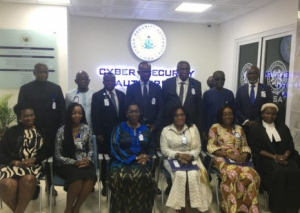Morocco: DamaneSign digitizes signatures and enhances trust
Digital trust is an important component to boost the adoption of digital services. In Morocco, where digital transformation is ongoing for years now, a legal framework was approved governing digital trust in the country. It paved the way for startups like DamaneSign to enhance trust in the digital sector.
DamaneSign is a Moroccan digital trust solution. It helps users digitize their signatures and authenticate them. The solution was developed by a startup, founded in 2021, months after a national law on digital trust. So, it was highly welcomed in the local tech ecosystem.
“The product is a SaaS (online) solution that allows you to sign and have documents signed securely. We act as the trusted third party between companies and their customers, allowing them to sign different contractual documents. We also help manage transactions with multiple signatories or sign multiple documents,” explains Zouhair Hamdaoui, founder of the startup that developed DamaneSign.
When required, the startup sends emails to every signatory inviting them to sign required documents as needed. Those signatories also receive authentification codes via SMS. “An agent readies the documents (contract, quote, invoice...) for electronic signature on the DamaneSign platform. The signatories receive those documents in their e-mail, read them, and sign,” Zouhair adds.
The startup offers two subscription packs to its users. The first pack costs MAD 300, allowing the user to send 25 documents to signatories for signature. The second pack costs MAD3,999 allowing, the subscriber to send up to 500 documents for signature.
Let’s note that DamaneSign stores users’ data in a data center located in Morocco. To sign documents, signatories must also have an account with DamaneSign or register one. For companies, the required information is the name of the entity, the number of the company, the professional information of the person registering the account on behalf of the company, and his/her professional email.
Adoni Conrad Quenum
Ghana wants to become the leader in cybersecurity in Africa
Ghana seeks to become the most cyber-secure country in Africa in the coming years. Speaking during the installation ceremony of the Board of Directors of the National Cybersecurity Authority last week, the country’s Minister of digitalization said “the government, within the last five years, has taken our cyber security development seriously.”
“The establishment of the Cyber Security Authority is one of the critical milestones achieved,” under this strategy, Ursula Owusu-Ekuful said. According to the International Telecommunication Union's (ITU) 2020 Global Cybersecurity Index report, Ghana ranked third in Africa and 43rd in the world based on the preparedness of the legislative and technical environment for cybercriminal attacks. With a score of 86.69/100, the country was better ranked than South Africa, which attracts the main foreign investment in digital technology, including data centers and optical fiber networks. The top 3 consists of Mauritius, Tanzania, and Ghana.
“We cannot simply sustain our digitalization efforts without cyber security. Cyber-attacks could undermine our gains in digitalization. It could undermine our social and economic well-being and consequently, our national security,” Ursula Owusu-Ekuful said.
Adoni Conrad Quenum
Côte d'Ivoire could save up to $4.2mln a year with digital security
The Ivorian government has made the fight against cybercrime one of its priorities since 2011. This crackdown has made it possible to shrink the financial damage due to cybercrime to $9.4 million in 2018 from about $24 million in 2010.
Digital security solutions can help Côte d'Ivoire save CFA2.5 billion (nearly $4.2 million) each year. This amount is how much the country lost to cybercriminals in 2021, according to Colonel Ouattara Moussa (pictured), director of information technology and technological traces (DITT) at the Ministry of the Interior and Security. Data released last January 31 by the anti-cybercrime platform (PLCC) showed that more than 5,000 complaints were recorded in 2021 compared to 2,408 in 2017, up 51.84%. PLCC reported that the main digital crimes recorded in the last year are threats of posting sexual images and sexual harassment on social media (Facebook, Instagram, Twitter, Snapchat, WhatsApp), e-transaction fraud, fraudulent use of natural person identifiers, damage to image and honor, and online scams. The platform says 50% of complaints were solved in 2021.
The data unveiled by the PLCC highlights the growing dangers in the digital world. In response, the government has taken several actions to further secure the national cyberspace. In 2020, it adopted a new cybersecurity strategy that extends to 2025. It also planned to invest $30.8 million to create a National Cybersecurity Council and a National Cybersecurity Authority.
While waiting for these investments to materialize, the National Center for Monitoring and Response to Computer Security Incidents in Côte d'Ivoire recommends that individuals be more vigilant online, that they regularly back up their data, equip their terminals with antivirus software, activate an antispam program on their e-mail, regularly update their operating systems and avoid installing software from unknown sources.
For businesses, the global IT consulting firm Accenture recommends, among other things, reducing data transfers, enabling full disk encryption on all devices, using cybersecurity operators, and adopting the cloud.
Adoni Conrad Quenum




